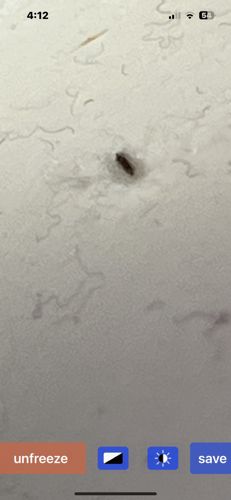Booklouse
Scientific Name: Liposcelis spp.
Order & Family: Psocodea (formerly Psocoptera), Liposcelididae
Size: 1-2 mm

Natural Habitat
Damp, humid conditions, feeding on microscopic mold and fungi. Often found indoors in books, papers, stored food products, and basements.
Diet & Feeding
Molds, fungi, starch, glue, dead insects, and other organic matter.
Behavior Patterns
Booklice are small, soft-bodied insects. They are typically wingless when found indoors and are active in damp environments. They are not parasites of humans or animals but can infest stored products and paper materials. They are often indicators of high humidity and potential mold growth.
Risks & Benefits
Potential risks include damage to books, papers, and stored food products through their feeding activities. They can be a nuisance when present in large numbers. They are generally harmless to humans, though some people may develop allergies. There are no known direct benefits to humans, but they play a role in decomposition in natural environments.
Identified on: 11/16/2025